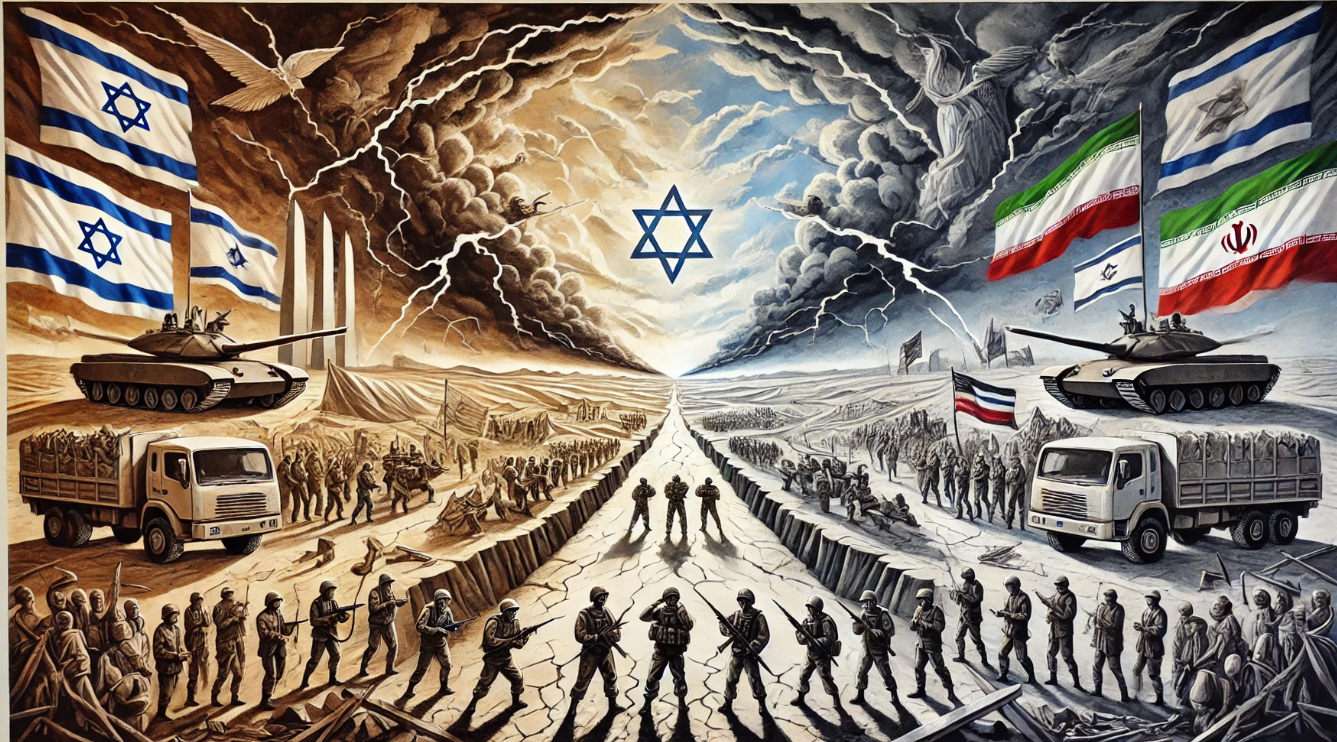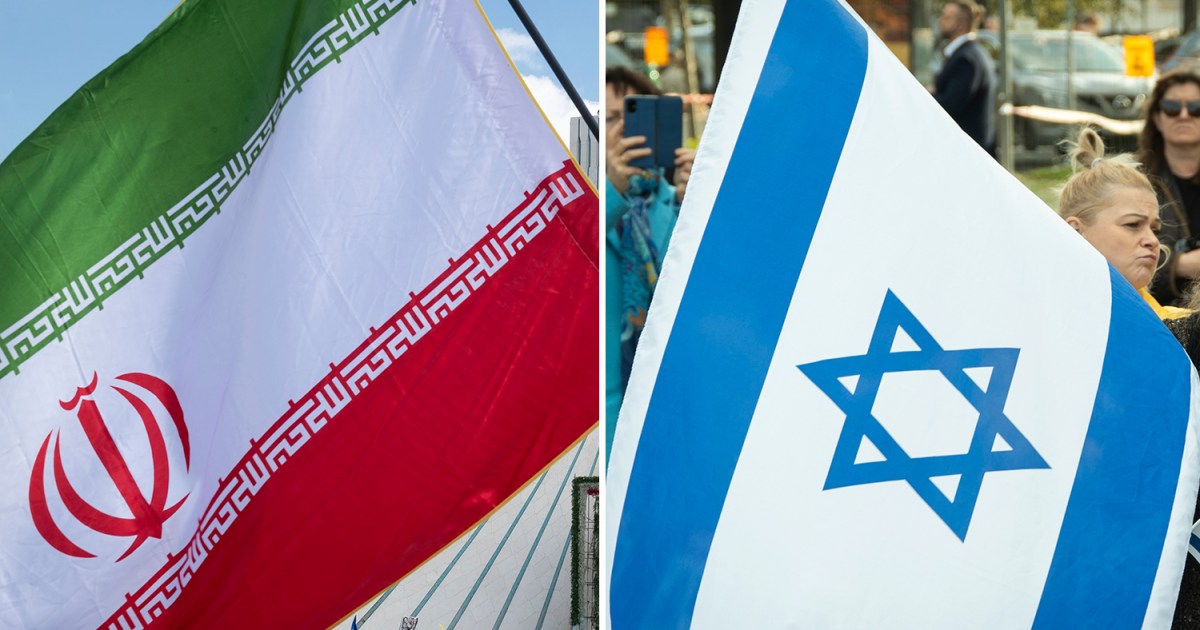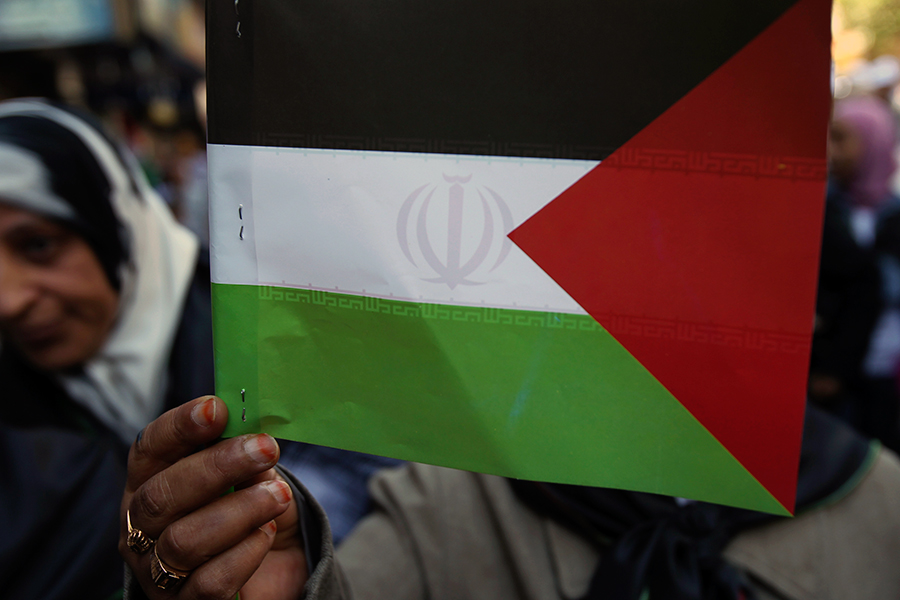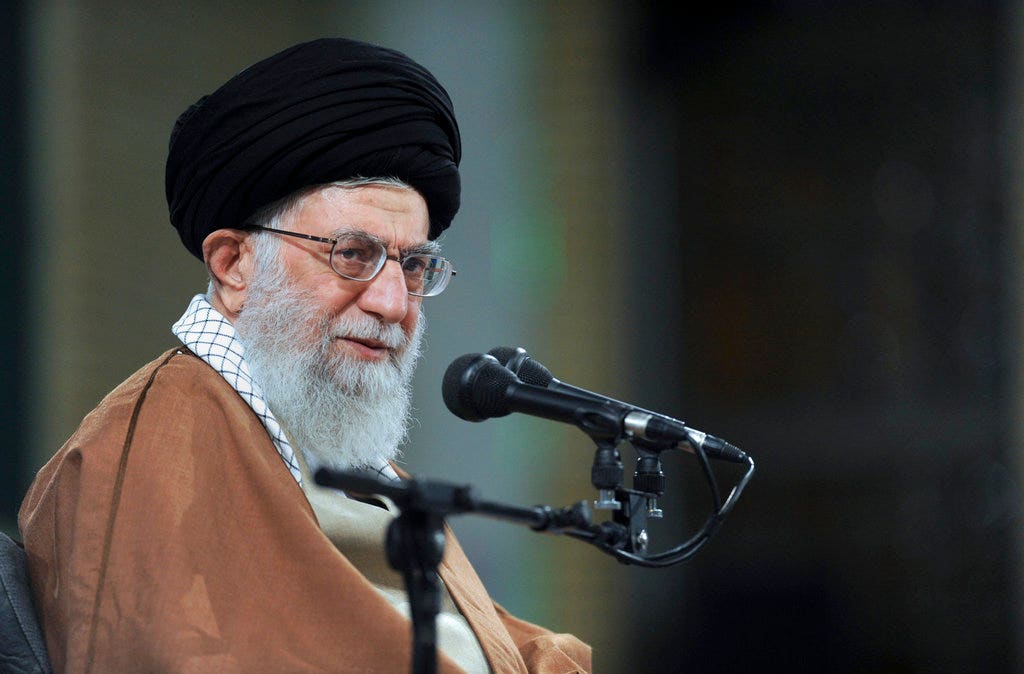How Tariffs, AI, and Robots Will Reshape Industry and Humanity
Tariffs are breaking old trade ties. AI and robots are rewriting the rules. The U.S.–China split is just the beginning of a new world map drawn in algorithms, not alliances.
The recent attacks on Hamas and Hezbollah leaders by Israel and plans by Iran could lead to a major global conflict.


In a dramatic escalation of the ongoing Israel-Hamas conflict, recent events have sent shockwaves through the Middle East. The assassinations of key figures from both Hamas and Hezbollah, coupled with retaliatory strikes and rising tensions, have brought the region to a critical juncture. This article examines the latest developments, their implications, and the potential consequences for regional stability.
What we do takes a lot of work. So, if you like our content and value the work that we are doing, please do consider contributing to our expenses. Choose the USD equivalent amount in your own currency you are comfortable with.
Ismail Haniyeh was killed in Tehran, Iran, reportedly in an overnight strike. The exact details of how he was killed remain unclear, but both Iranian and Hamas sources have blamed Israel for the assassination.

Haniyeh was staying at a special residence for war veterans in Tehran when the attack occurred around 2 a.m. local time.
Read - Hamas leader Ismail Haniyeh killed in Tehran - what we know so far
On July 31, 2024, Hamas announced that its political chief, Ismail Haniyeh, had been killed in an Israeli strike in Tehran, Iran. This unprecedented attack on Iranian soil marks a significant escalation in the conflict and raises questions about the extent of Israel's reach and its willingness to conduct operations beyond its immediate borders.
The strike occurred in a heavily guarded area of Tehran, suggesting a high level of intelligence and operational capability on Israel's part. While Israel has not officially claimed responsibility for the attack, its government press office posted an image on social media of Haniyeh with the word 'eliminated' stamped across his forehead, implicitly acknowledging its role in the assassination.
#BREAKING: Hamas chief Ismail Haniyeh has been eliminated. 🎯 pic.twitter.com/jGTheFQtNF
— Israel War Room (@IsraelWarRoom) July 31, 2024
Ismail Haniyeh had been a prominent figure in Hamas for decades, serving as the group's political leader since 2017. His position made him one of the most influential figures in Palestinian politics and a key decision-maker in Hamas's operations. Haniyeh's death represents a major blow to the organization's leadership structure and could potentially impact its strategic direction.
Throughout his tenure, Haniyeh was known for his hardline stance against Israel and his efforts to maintain Hamas's control over the Gaza Strip. His presence in Tehran at the time of his death also underscores the close relationship between Hamas and Iran, a connection that has long been a source of concern for Israel and its allies.
The news of Haniyeh's assassination sparked immediate reactions across the region. Palestinian factions in the occupied West Bank called for a general strike and protest marches, demonstrating the widespread impact of his death on Palestinian society. Hamas officials vowed that Haniyeh's killing would not go unanswered, raising fears of retaliatory attacks against Israeli targets.
Iran's supreme leader, Ayatollah Ali Khamenei, issued a strong statement condemning the attack and promising harsh punishment for Israel. This response from Iran's highest authority suggests that the assassination could have far-reaching consequences for regional stability and Iran's involvement in the conflict.
Fuad Shukr was killed in an Israeli airstrike in Beirut, Lebanon, on Tuesday night. The strike targeted a building in the Haret Hreik district, a Hezbollah stronghold in southern Beirut. Hezbollah confirmed Shukr's death more than 24 hours after the strike, indicating that his remains were found in the debris.
Just hours before the news of Haniyeh's assassination broke, Hezbollah confirmed that its top commander, Fuad Shukr, had been killed in an Israeli strike on southern Beirut. The strike, which occurred on July 30, 2024, targeted a building in the Lebanese capital, demonstrating Israel's willingness to conduct operations deep within Lebanese territory.
Israel had announced the targeting of Shukr shortly after the strike, but Hezbollah's confirmation came nearly 24 hours later. This delay in confirmation is not uncommon in such situations, as militant groups often take time to verify casualties and plan their public responses.
Fuad Shukr was a high-ranking member of Hezbollah's military wing and was considered one of the group's most experienced and influential commanders. Israeli officials accused Shukr of being responsible for a recent rocket strike on the annexed Golan Heights that killed 12 children, highlighting the immediate motivations behind the targeted assassination.
Shukr's elimination represents a significant loss for Hezbollah's military capabilities and command structure. His experience and strategic insight were highly valued within the organization, and his death is likely to have an impact on Hezbollah's operational effectiveness in the short term.
The assassination of a top Hezbollah commander in Beirut raises serious concerns about Lebanon's sovereignty and the potential for wider conflict. The strike demonstrates Israel's willingness to conduct operations within Lebanese territory, potentially drawing Lebanon further into the ongoing conflict between Israel and various militant groups in the region.
This incident also highlights the complex web of alliances and conflicts in the Middle East, with Hezbollah's close ties to Iran and its support for Hamas placing it firmly in Israel's crosshairs. The assassination of Shukr could lead to increased tensions along the Israel-Lebanon border and potentially trigger a cycle of retaliatory strikes.
The most significant aspect of the escalating violence and retaliatory strikes between Israel and Iran is the potential for a broader regional conflict, driven by the assassination of key figures and subsequent retaliatory actions.
In the days leading up to these high-profile assassinations, Israel and Hezbollah had already been engaged in a series of deadly exchanges. The rocket strike on the Golan Heights that killed 12 children served as a catalyst for increased hostilities, with both sides launching attacks across the border.
These exchanges have included rocket fire from Lebanon into northern Israel, as well as Israeli airstrikes on targets in southern Lebanon. The intensity and frequency of these attacks have raised fears of a potential wider conflict that could engulf the region.
As is often the case in such conflicts, civilian populations on both sides have borne the brunt of the violence. The deaths of children in the Golan Heights strike sparked outrage in Israel and led to calls for a strong response. Similarly, Israeli strikes in Lebanon have resulted in civilian casualties and damage to infrastructure, fueling anger and resentment among the Lebanese population.
The targeting of civilian areas, whether intentional or as collateral damage, threatens to further inflame tensions and make de-escalation efforts more challenging. International humanitarian organizations have called on all parties to exercise restraint and avoid actions that could lead to more civilian deaths.
While the human cost of the conflict is devastating, it's important to understand the military and strategic objectives driving these actions. For Israel, the targeting of high-ranking officials like Shukr and Haniyeh is part of a broader strategy to degrade the capabilities of militant groups and deter future attacks.
Hezbollah and Hamas, on the other hand, view their attacks on Israeli targets as legitimate resistance against what they consider to be occupation and aggression. The rocket strikes and other operations are intended to demonstrate their ability to inflict damage on Israel and maintain support among their respective populations.
Historically, Iran and Israel had a complex relationship. Under the Pahlavi regime, Iran and Israel enjoyed close ties and strategic cooperation. However, this relationship drastically changed after the 1979 Islamic Revolution in Iran, which brought an anti-Israel stance to the forefront of Iranian foreign policy. The new regime viewed Israel as an illegitimate state and a symbol of Western imperialism in the Middle East.

One of the primary ways Iran influences the conflict is through its support for various non-state actors and militant groups that oppose Israel. These include:

Iran has long been a key supporter of both Hamas and Hezbollah, providing financial, military, and diplomatic backing to these groups. This support has been a major source of concern for Israel and its allies, who view Iran's involvement as a destabilizing force in the region.
The assassination of Ismail Haniyeh on Iranian soil underscores the depth of the relationship between Hamas and Iran. It also raises questions about the level of protection and support Iran is able to provide to its allies, given Israel's apparent ability to conduct operations within the country.
Following the assassination of Haniyeh, Iran's supreme leader vowed harsh punishment for Israel. This rhetoric raises the specter of potential Iranian retaliation, either directly or through its proxies in the region. Such actions could lead to a significant escalation of the conflict and potentially draw other regional powers into the fray.
Iran response will be closely watched by international observers, as it could have far-reaching consequences for regional stability. The Islamic Republic must balance its desire to support its allies and maintain its image as a powerful regional player with the risk of provoking a wider conflict that could have severe consequences for its own security and economic interests.
The latest developments in the Israel-Hamas conflict, particularly the strike in Tehran, could have implications for ongoing negotiations regarding Iran's nuclear program. The incident may further strain relations between Iran and Western powers, potentially complicating efforts to reach a diplomatic solution to the nuclear issue.
Additionally, the assassinations and subsequent tensions could impact Iran's relationships with other regional powers, including Gulf states that have been seeking to improve ties with Tehran. The evolving situation presents both challenges and opportunities for various actors in the region's complex geopolitical landscape.
Here is a video from Zach Sage X Post. When you put together the treatment of German Israeli woman Shani Louk who was killed and paraded with minimum clothes as the Palestinians cheered and spit on her dead body, with this video - you get a very gruesome picture.
Watch this video carefully.
Palestinians have never wanted to a "Two-State Solution". They want a 'One State solution' - and that one state should be Palestine. That is what the slogan - "From the river to the sea, Palestine will be free" really means.
The world can see the implications of this conflict and many efforts have been done to stop the conflict from escalation.
The United Nations Security Council has held multiple emergency sessions to address the escalating conflict. While the council has issued statements calling for de-escalation and the protection of civilians, it has struggled to reach consensus on more substantive actions due to disagreements among its permanent members.
Some member states have pushed for stronger condemnation of Israel's actions, while others have emphasized Israel's right to self-defense. This divide has limited the Security Council's ability to take decisive action to address the crisis.
Various regional actors, including Egypt and Qatar, have attempted to mediate between Israel and Hamas. These efforts have focused on establishing ceasefires, facilitating prisoner exchanges, and addressing the underlying issues that have fueled the conflict.
While these mediation attempts have had some limited success in the past, the recent escalation and high-profile assassinations have complicated diplomatic efforts. The heightened tensions and mutual distrust between the parties involved present significant challenges to finding a peaceful resolution.
The conflict has garnered significant international attention, with media coverage and public opinion playing a role in shaping the global response. Images and reports of civilian casualties, particularly children, have sparked outrage and calls for action from various quarters.
Social media has also played a significant role in disseminating information and shaping narratives around the conflict. However, the prevalence of misinformation and conflicting accounts has made it challenging for the international community to form a clear and unified response to the crisis.
The recent assassinations of high-ranking Hamas and Hezbollah officials, coupled with ongoing violence and retaliatory strikes, have brought the Israel-Hamas conflict to a critical juncture. The deaths of Ismail Haniyeh and Fuad Shukr represent significant blows to their respective organizations and are likely to have far-reaching consequences for the region.
As of this writing, Iran's religious leader Ali Khamenei has ordered Iranian Armed Forces to launch a direct strike on Israel.

The Supreme National Security Council in Iran held an emergency meeting. That is where the orders were given.

As tensions continue to escalate, the international community faces the daunting task of preventing further bloodshed and working towards a lasting resolution to the conflict. The involvement of regional powers like Iran, the humanitarian crisis in Gaza created by Hamas adamant at not giving back the hostages and its ploy to use civilians as human shields, and the complex web of alliances and enmities in the Middle East all contribute to the challenges of stopping the imminent war!
The coming days and weeks will be crucial in determining whether the latest developments lead to a wider conflagration or if diplomatic efforts can succeed in de-escalating the situation. As the world watches, the lives of millions of civilians in the region hang in the balance.